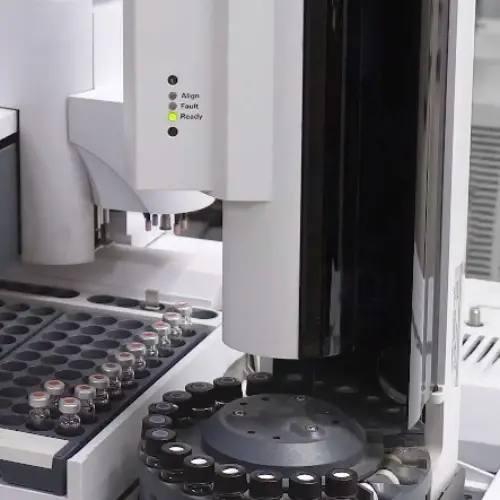Introduction:
Polychlorinated Biphenyls (PCBs) have been a concerning issue in Texas for several decades. These persistent organic pollutants have infiltrated various environmental mediums, posing significant risks to human health and the ecosystem. In this comprehensive guide, we will delve into the world of PCBs in Texas, exploring their sources, historical context, regulations, and cleanup efforts. By understanding the implications of PCB contamination, we can work towards effective solutions and safeguard the well-being of our communities and the environment.
Historical Background of PCBs in Texas
PCBs were widely used in Texas during the mid-20th century for various industrial applications due to their heat resistance and electrical insulating properties. However, as the detrimental effects of PCBs on human health and the environment became evident, their production and usage were banned in the United States in 1979. Despite the ban, PCBs continue to persist in the environment, especially in older industrial sites, waste disposal areas, and contaminated water bodies.
Texas, being a hub of industrial activities, has faced significant PCB contamination challenges over the years. In the following sections, we will explore the sources of PCB contamination and understand how these toxic chemicals have affected the state.
Sources of PCB Contamination
PCBs have entered the environment through various sources, both accidental and deliberate. In Texas, the primary sources of PCB contamination include industrial activities, improper disposal of PCB-containing products, and accidental spills. Industrial processes such as manufacturing, refining, and electrical equipment maintenance have historically contributed to the release of PCBs into the air, water, and soil.
Health Risks Associated with PCB Exposure
Exposure to PCBs can have severe health implications for humans. These toxic chemicals have been linked to a range of health problems, including developmental and reproductive disorders, immune system dysfunction, liver damage, and certain types of cancer. In Texas, communities residing near PCB-contaminated sites are particularly vulnerable to these health risks.
Environmental Impacts of PCBs in Texas
The presence of PCBs in the environment has detrimental effects on ecosystems and wildlife
PCBs can bioaccumulate in organisms, leading to disruptions in their reproductive, immune, and endocrine systems. Aquatic ecosystems, in particular, are highly susceptible to PCB contamination, as these chemicals tend to accumulate in sediments and affect aquatic organisms.
Regulatory Framework for PCB Management
To address the risks posed by PCBs, both at the federal and state levels, comprehensive regulations and guidelines have been established. The U.S. Environmental Protection Agency (EPA) regulates PCBs under the Toxic Substances Control Act (TSCA). Additionally, the Texas Commission on Environmental Quality (TCEQ) plays a crucial role in enforcing regulations and overseeing the management of PCBs within the state.
PCB Testing and Monitoring in Texas
Efficient testing and monitoring programs are essential to identify and assess PCB contamination levels accurately. In Texas, various organizations and agencies conduct sampling and analysis of environmental samples to monitor PCB concentrations. These monitoring efforts help in identifying high-risk areas and implementing appropriate mitigation strategies.
PCB Cleanup and Remediation Efforts
The cleanup and remediation of PCB-contaminated sites are complex tasks that require careful planning and execution. Texas has implemented several initiatives to address PCB contamination, including site characterization, risk assessment, and remedial actions. These efforts aim to reduce the potential exposure pathways and restore contaminated sites to acceptable levels.
Case Studies: PCB Hotspots in Texas
Certain regions in Texas have gained notoriety for their significant PCB contamination issues. Case studies of these PCB hotspots provide valuable insights into the challenges faced by local communities and the strategies employed to mitigate contamination. By examining these case studies, we can learn from past experiences and develop effective approaches to tackle PCB-related problems.
Public Awareness and Education Initiatives
Raising public awareness about the dangers of PCBs is crucial for promoting informed decision-making and community involvement. Texas has implemented various education initiatives, including public outreach programs, awareness campaigns, and community workshops, to educate residents about the risks associated with PCB exposure and ways to prevent contamination.
Future Outlook: Addressing PCB Challenges in Texas
While significant progress has been made in addressing PCB contamination in Texas, challenges still remain. The future outlook necessitates a comprehensive approach involving continued monitoring, effective enforcement of regulations, collaboration among stakeholders, and research into innovative remediation technologies. By proactively addressing these challenges, Texas can pave the way for a cleaner and healthier environment.
Conclusion:
The issue of Polychlorinated Biphenyls (PCBs) in Texas is a multifaceted problem that requires comprehensive solutions. PCB contamination poses significant risks to human health and the environment, necessitating regulatory frameworks, testing and monitoring programs, cleanup efforts, and public awareness initiatives. By understanding the historical context, sources of contamination, health and environmental impacts, and regulatory measures, we can work towards addressing PCB challenges effectively. It is imperative to continue efforts to mitigate PCB contamination, protect vulnerable communities, and ensure a sustainable future for Texas.
Contact us
Email: info@ablabs.com
URL: https://ablabs.com






